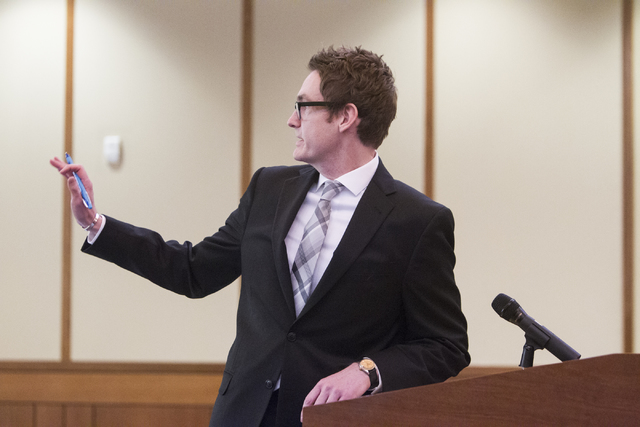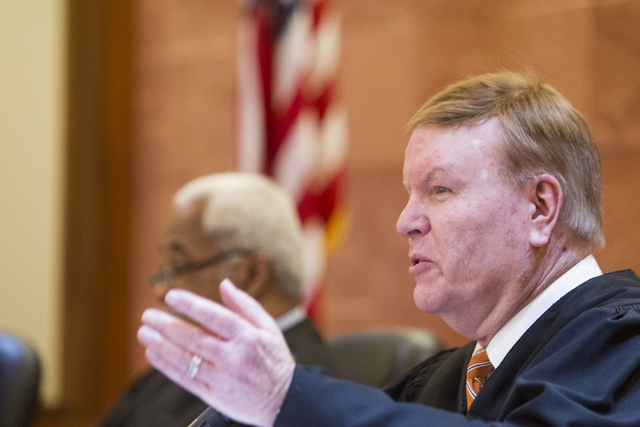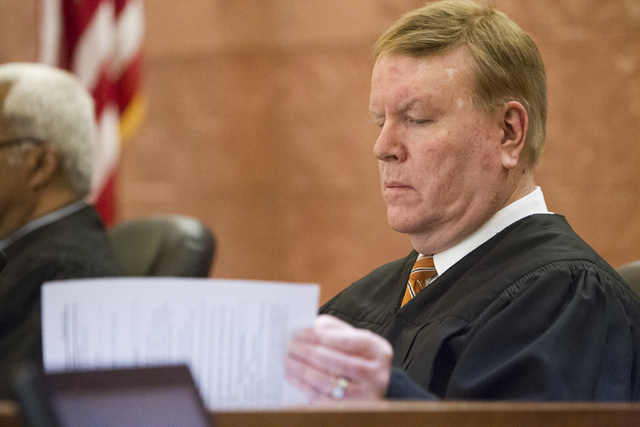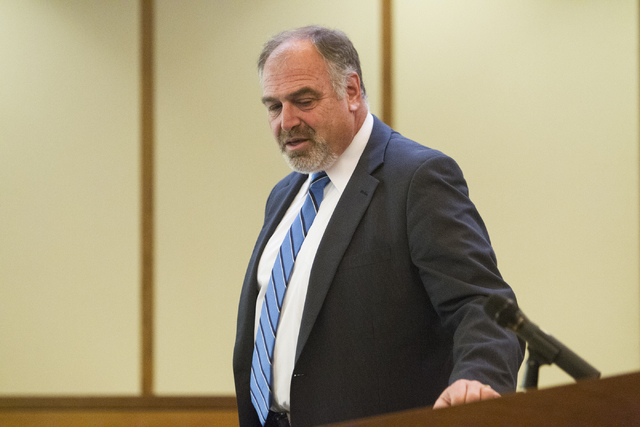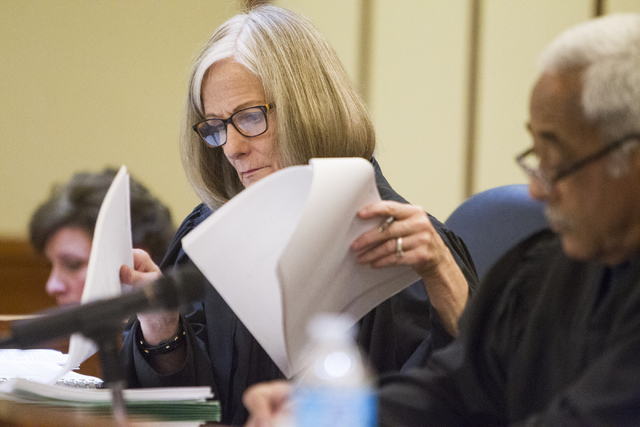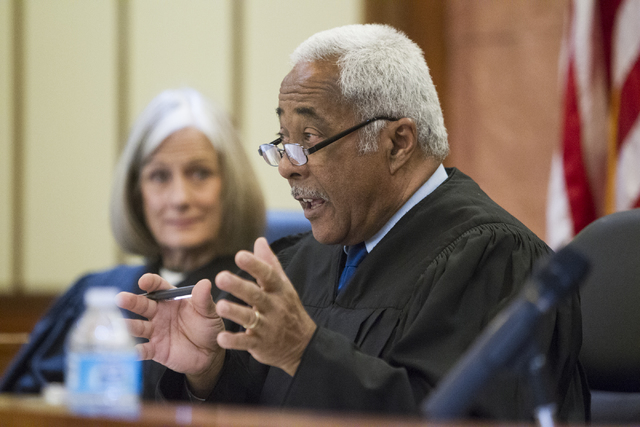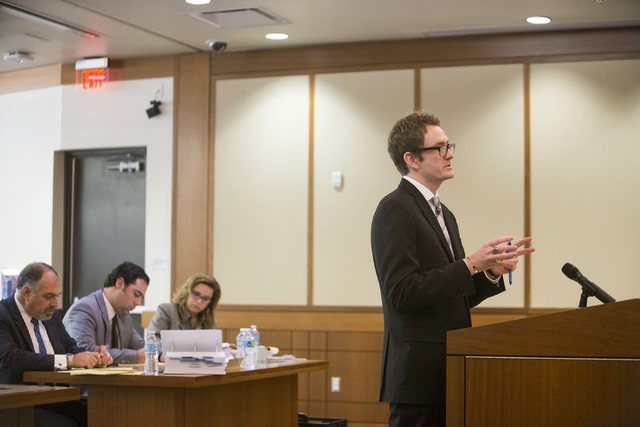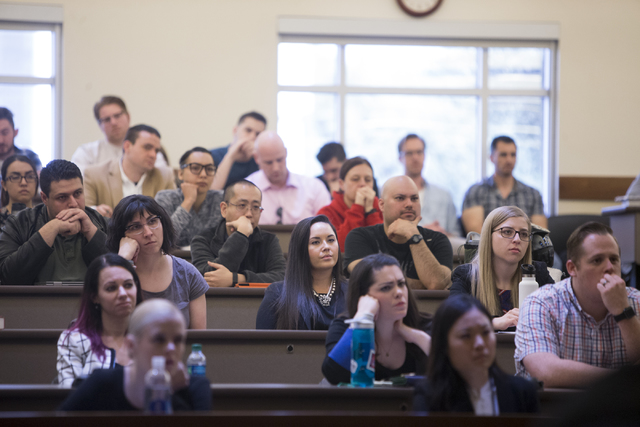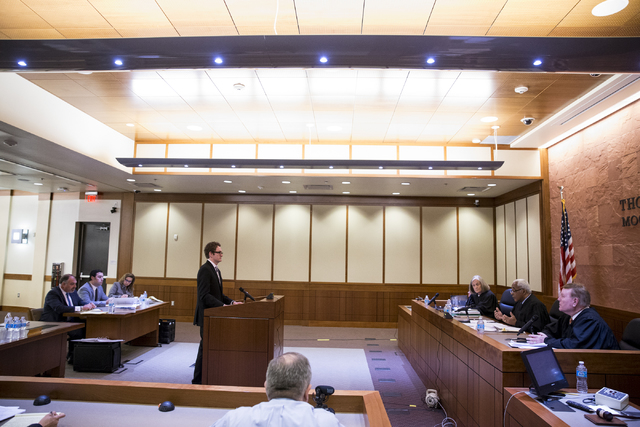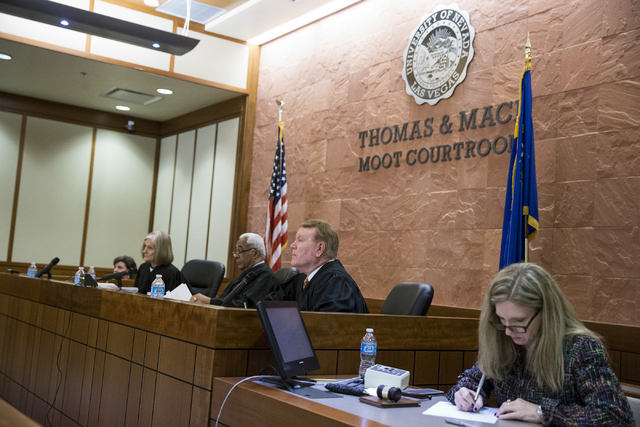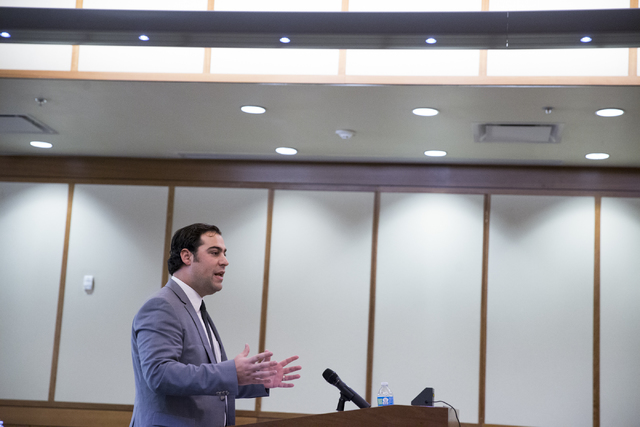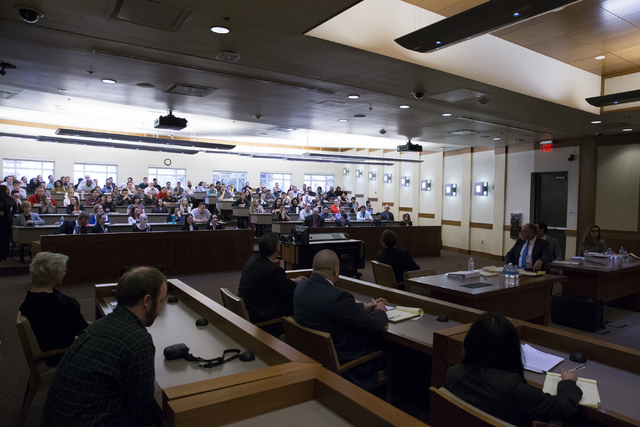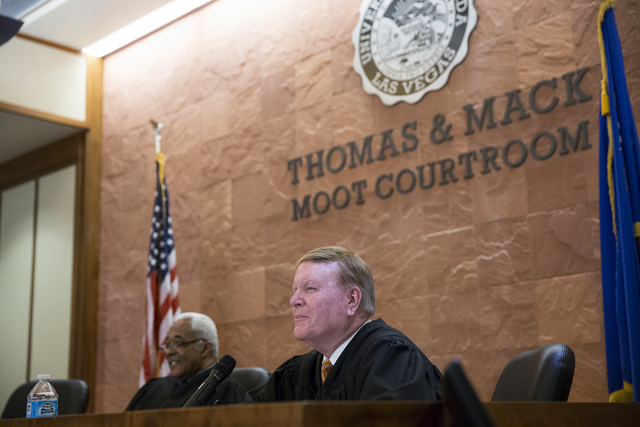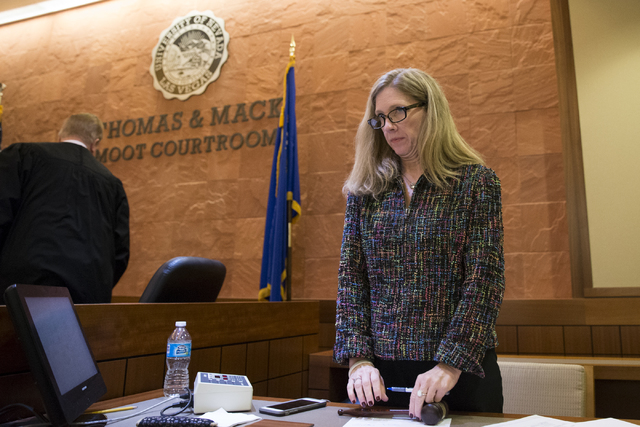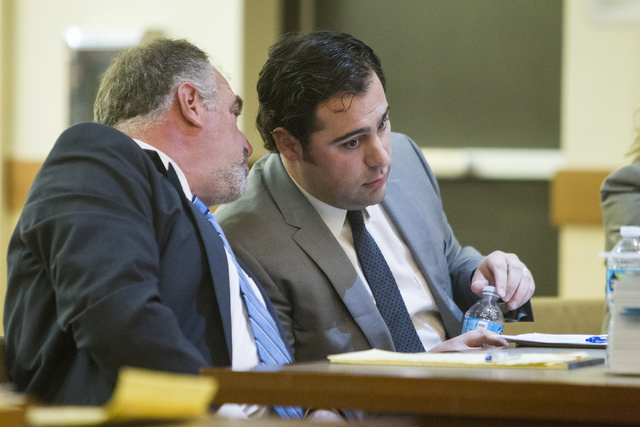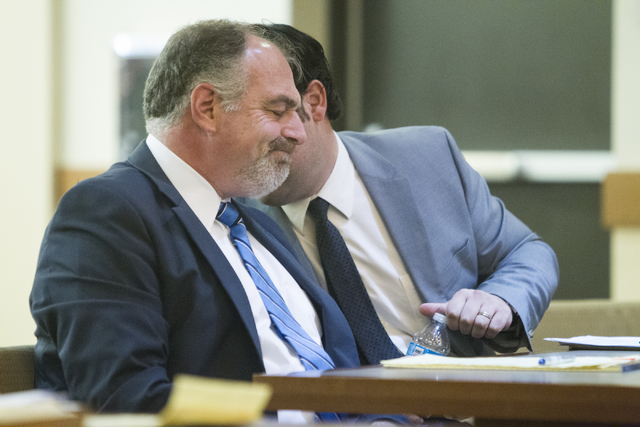Nevada Supreme Court hears arguments at UNLV
A lawyer argued Wednesday that the Regional Transportation Commission should have warned about the hazards of bus stop structures along major roadways before a 2012 crash that severed a teenage boy’s leg.
Ross Moynihan represents Conan Obenchain, who was 15 when a drunken driver struck him at a bus stop.
In arguments Wednesday before the Nevada Supreme Court, Moynihan said officials who designed and decided on the location of the structure should have known that there was “an increased danger to the people waiting at those bus stops.”
The high court heard arguments in the case at UNLV’s Thomas & Mack Moot Court.
Moynihan contended that a Clark County judge should not have thrown out a lawsuit against the commission and others.
Obenchain was sitting on a bench at the southwest valley bus stop about 5 a.m. on Feb. 5, 2012.
Noel Lynn Lardeo, then 26, was driving a 2005 Acura TSX west on Spring Mountain Road, west of Jones Boulevard, when she veered onto the north sidewalk, hitting the bus stop shelter and Obenchain.
Lardeo pleaded guilty to DUI with substantial bodily harm and was sentenced to six to 15 years in prison.
Anthony Garasi, a lawyer for the commission, argued that the judge was right to dismiss the suit.
He said the commission should be exempt from civil liability under what is known as discretionary immunity.
A three-judge panel — made up of Justice Michael Douglas, Justice Mark Gibbons and Justice Kristina Pickering — is expected to make a ruling in the case within 45 days. The high court routinely hears arguments around the state.
The panel also heard arguments Wednesday in the appeal of Elita “Gaby” Maldonado, who was convicted in January 2015 of first-degree murder for killing a man inside a northeast valley apartment.
Appellate attorney Sandra Stewart, who represents Maldonado, said the woman acted in self-defense, and she should have been allowed to plead “guilty but mentally ill” in order to receive treatment in prison.
But prosecutor Michelle Sudano told the judges that there was no evidence of self-defense and that Maldonado made no attempt to enter such a plea until after she was convicted. At trial, Maldonado’s lawyers argued that she was not guilty by reason of insanity.
Contact David Ferrara at dferrara@reviewjournal.com or 702-380-1039. Follow @randompoker on Twitter.



